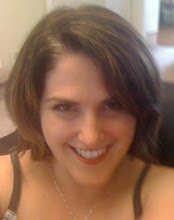Book 44: Bad Marie
Marcy Dermansky
Bad Marie could have been a cliche. The hot nanny; the bored, weak husband; the seemingly cold, ambitious wife. But Dermansky avoids death by predictability.
I read Bad Marie in one day. I can't precisely define what it is that made the story so compelling, but I was completely sucked into the book. I also can't say I particularly cared for Marie, the ex-con landing on her childhood friend's doorstep begging for a job. Friend Ellen takes in Marie, tasks her with caring for young Caitlin. Caitlin adores Marie, and Marie adores Caitlin.
Whiskey swilling, chocolate loving, and thieving, Marie sets her sights on Ellen's husband and so begins the saga that is Bad Marie. We learn that Marie's always coveted Ellen's life, from the time they were children and even now, after serving six years in prison as an accessory to armed robbery. Although Marie sees what she wants and takes it, this is no "Hand That Rocks The Cradle."
Although Marie's childhood was far from ideal, I never felt sorry for her. I don't know if this ambivalence to Marie was deliberate on Dermansky's part. I found myself frustrated with Marie more than once, shouting to her in my mind, "You can't just take something because you want it. It doesn't work that way." But it does with Marie.
The whole story ends up being a quest for some kind of stability and love for Marie. And ultimately, I think she does begin to realize that she has to return all that she has taken. While deep down, she knows that some things are unforgivable, Marie still imagines that somehow, all those she has wronged will do just that.
At the same time, Marie's illusions about the men she's loved- her "true love" who died in prison, and Ellen's husband (with a twisted, sad backstory all his own)- are shattered in front of her eyes. She finally begins to realize that she creates whatever reality she needs, yet she is consistently disappointed when the true imperfections reveal themselves.
Dermansky's prose is purposeful and eloquent. She repeats a particular exchange between Marie and Caitlin, showing how Marie's adoration for the little girl is perhaps the only pure thing in her life.
So I can't say precisely why I could not put down this book. It certainly wasn't an enchanting, happy ending. It was not sad and melancholy. Perhaps it was the realism of this glimpse into a troubled psyche. Perhaps there was some identification with Marie- thinking the grass is greener in another life, preferring to re-write events in our mind to make them fit our definition of happiness and perfection. At any rate, I found this book oddly and completely compelling.

No comments:
Post a Comment